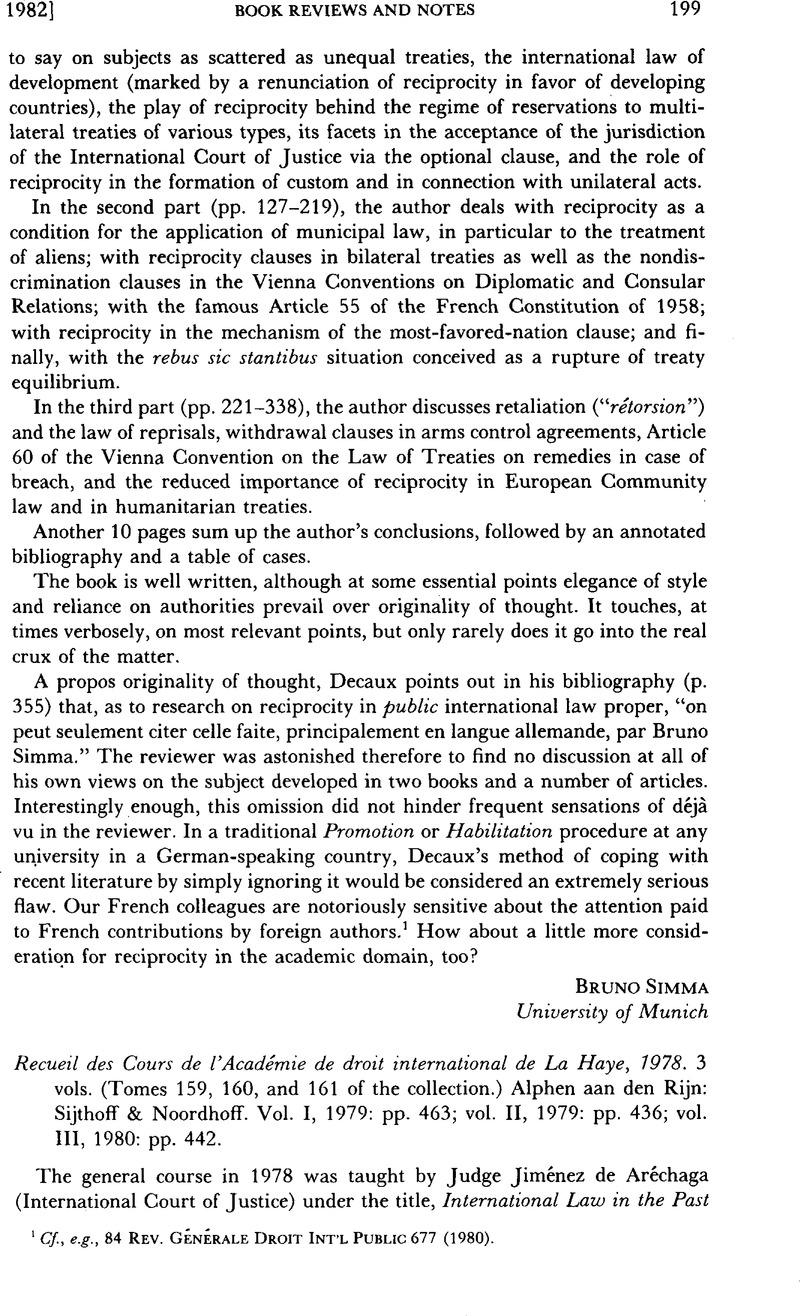No CrossRef data available.
Article contents
Recueil des Cours de l’Académie de droit international de La Haye, 1978. 3 vols. (Tomes 159, 160, and 161 of the collection.) Alphen aan den Rijn: Sijthoff & Noordhoff. Vol. I, 1979: pp. 463; vol. II, 1979: pp. 436; vol. III, 1980: pp. 442.
Published online by Cambridge University Press: 27 February 2017
Abstract

- Type
- Book Reviews and Notes
- Information
- Copyright
- Copyright © American Society of International Law 1982
References
1 One strange apparent exception to this refusal is the background paper by David Gantz, while an attorney in the Department of State, saying that “[t]he protection of nationals is not only the right, but the duty of the State” (Digest of United States Practice in International Law 1973, at 334). Six months later the Assistant Legal Adviser for International Claims wrote: “The diplomatic protection afforded by the Government of the United States to its nationals . . . is not a legal right. Such protection, instead is in effect an extra–ordinary legal remedy which is employed by the Department [of State] in its discretion . . .” (id. at 333). In the circumstances it is very difficult to understand why the first statement, an internal memorandum by a junior official obviously overruled on the point of law within the Department, was published in a repertory of United States practice.
2 Lillich at one place, 161 Recueil Des Cours 349 (1978 III), attributes the virtual disappearance of forcible self–help to collect contract debts owed to aliens to Convention No. 2 of the 1907 Hague Peace Conference. He does not mention that the second paragraph of Article I of that Convention lifts the prohibition on the use of force in cases in which “the debtor State refuses or neglects” to agree to arbitration of the claim or “fails to submit to the award.” Further into the course (id. at 358) he mentions the importance of other documents in transforming the Drago doctrine into a rule of positive law.
3 Lillich apparently believes the common Latin American practice of attempting to place foreign firms on the same legal plane as domestic firms by obtaining a contractual commitment from them not to seek diplomatic intervention but to confine themselves to the remedies available to domestic firms in case of dispute arising under the contract, is legally futile, although it is being revived today in the context of the so–called New International Economic Order (id. at 349–53, 368–72). Jiménez de Aréchaga’s views are very different. See id. at 309–10 (1978 I); and Jiménez de Arechaga, International Responsibility, in Sørensen, Manual of Public International Law 531, 590–93 (1968).
4 A handy extract of the sizable documentation relating to the Don Pacifico case is in L. Sohn & T. Buergenthal, International Protection of Human Rights 40–58 (1973).
5 130 Recueil Des Cours 95, 457 (1970 II), reviewed in 68 AJIL 545 at 548–50 (1974).


